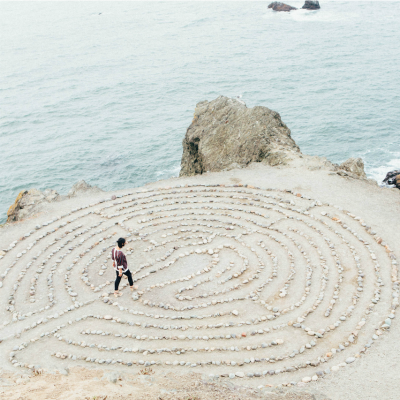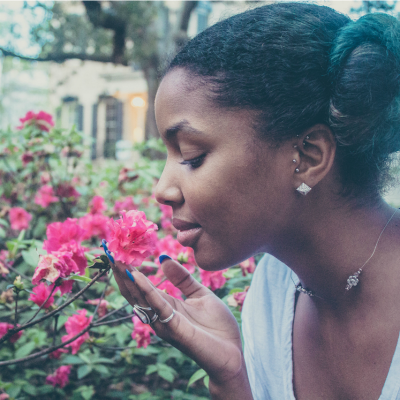Gratefulness: An Opportunity to Practice
Truthfully, it can be said that we are always practicing something. Most often, we are practicing what is habitual, familiar, and mostly unconscious…

All the great wisdom traditions teach us that life is precious; that what is happening right now IS life, not some future destination, time, or state of mind. “Carpe Diem,” they say, implying that we must take none of this moment, and its opportunities, for granted. But as we all know, this is easier said than done, especially when our lives deliver us genuine challenges to living out this simple and profound philosophy. Fortunately, wisdom traditions, including gratefulness, offer a wide range of practices so that we can guide ourselves in becoming more fully awake and present; an opportunity available to all of us at every moment, no matter the conditions of our lives.
It may sound somewhat abstract, but a “practice” is anything we do that builds mastery through repetition. Practices offer us a pathway for sustained, incremental growth, and a mode of learning that can result in a “felt sense” regarding the progression of whatever we are trying to develop. Whether it’s the ability to stretch more deeply in a yoga posture, to remind ourselves to breathe rather than react in conversations, or to bring greater mindfulness into our day-to-day activities, practices can support us to move forward in our commitments and intentions.
Seeing habits of mind as routinized practices acknowledges that awareness has the possibility to interrupt and redirect our patterns.

Truthfully, it can be said that we are always practicing something. Most often, we are practicing what is habitual, familiar, and mostly unconscious. Habits of mind can be as much a practice as our daily routines. It can actually help to think of common attitudes such as resentment, fear, and projection as practices in which we engage as automatically as we make our tea or coffee in the morning. Seeing habits of mind as routinized practices acknowledges that awareness has the possibility to interrupt and redirect our patterns. If we can know and name—in the moment—that we are practicing resentment, it means we can possibly replace that practice with something more productive and in line with what we want to embody, and to do this we begin by paying attention.
When we think about all the ways we are already practicing our approaches to life, the concept of “practice” starts to sound less abstract, and reminds us that practicing is necessary to become adept at most anything, whether good for us, or bad. Proficiency arises from a regular commitment to any simple and familiar practice, and serves as a building block to all that follows. For example, even accomplished musicians practice the basic scales. No scales, no Beethoven. Same with athletes: no jogging, no marathons. Spiritual teachers: no regular contemplation, no wisdom to share.
Underlying all of this is repetition and commitment, but also a certain elegant simplicity. The form an effective practice takes is rarely complicated, maybe because we are complex enough inside ourselves, and the real work remains in grappling with the mind and persisting until something shifts and the heart knows it. Placing these ideas about practice and opportunity within the context of our day-to-day lives, it is helpful to think about how they can connect us to living gratefully.
We cannot be grateful for all that a given moment brings us; yet, in any given moment, we can be grateful for something. The gift within the gift of any given moment is opportunity. ~ Br. David Steindl-Rast

Brother David says, “We cannot be grateful for all that a given moment brings us; yet, in any given moment, we can be grateful for something. The gift within the gift of any given moment is opportunity. We may feel that we have got nothing but trouble, but even our worst troubles are jam-packed with opportunity. Our troubles create a great deal of noise. In the midst of that din it is not easy to hear the soft voice of opportunity. We need trained ears. This is why we need to train our ears long before trouble breaks in on us.”
Gratefulness, like mindfulness or yoga, is an awareness practice and a way of training, deepening, and directing our attention. The point is not to become an expert in grateful living—never wavering from a grateful outlook—but to recognize that gratefulness can offer us a “touchstone” for life (especially in difficult times) where we can return our awareness again and again in order to shift or expand our perspective. Like other forms of practice, gratefulness makes us more resilient and flexible, and also offers a way to frame and learn from everything that unfolds in our lives. Through practicing over time, we gradually become more and more able to recognize the opportunity in every moment. Practice helps us to deliver on presence, and being present leads to so much else that is beneficial.
Recognizing that we are always practicing something, we begin to develop the capacity to become more aware of opportunities, and to shift our awareness toward that which serves us, others, and the world.
Every day – even the hard days, or maybe especially the hard days – offers us a chance to hone our skills through repetition and small steps. With gratefulness, we can adopt practices that are widely used, like writing in a gratitude journal to start or end our day, watching A Good Day, or reading articles, blogs or poems that remind us about being grateful. Like its close cousins, yoga and mindfulness, gratefulness is grounded in helping us to:
“stop”—to breathe and awaken to the moment,
“look”—to become aware of what is happening around and inside us, which reminds us that life is a gift and that opportunities abound, and only then to…
“go”—to take action in our lives that reflects this greater awareness and great-fullness
We often begin to truly practice gratefulness once we realize that we may not have full agency over all that happens in our lives, but recognize that we have choices about how to direct our attention and actions. Recognizing that we are always practicing something, we begin to develop the capacity to become more aware of opportunities, and to shift our awareness toward that which serves us, others, and the world. Working with these opportunities, we can gradually guide our hearts, minds, and bodies in such a way that we can more readily access real gratitude for the phenomenal gift of life—so precious, so temporary, and so worthy of our care and humble celebration.
This article is printed here with permission. It originally appeared on Gratefulness, the online magazine of the A Network for Grateful Living. This is a global organization offering online and community-based educational programs and practices which inspire and guide a commitment to grateful living, and catalyze the transformative power of personal and societal responsibility. Kristi Nelson is the Executive Director of A Network for Grateful Living. To read more about her visit this page.
SHARE YOUR REFLECTION
5 Past Reflections


On May 21, 2017 Lorien Nemec wrote:
I LOVED reading this. Very beautifully well written, poignant, and so relevant to our quest for happiness in life. Thank you Kristi!


On May 18, 2017 David Cole wrote:
So much evil abounds around us as people seek to destroy our freedoms. Seeing God's handiwork in nature and beauty beyond imagination is a return to the reality that gratitude is so essential for faith, life to be of service to our fellowman.


On May 22, 2017 Kristin Pedemonti wrote:
I've kept a gratitude journal off and on since 1999, it has made a huge difference in my focus on all the beauty and goodness and kindness and love swirling around us even in the midst of challenging times. Here's to gratitude, here's to the gifts given and received! Hugs from my heart to yours!
Post Your Reply